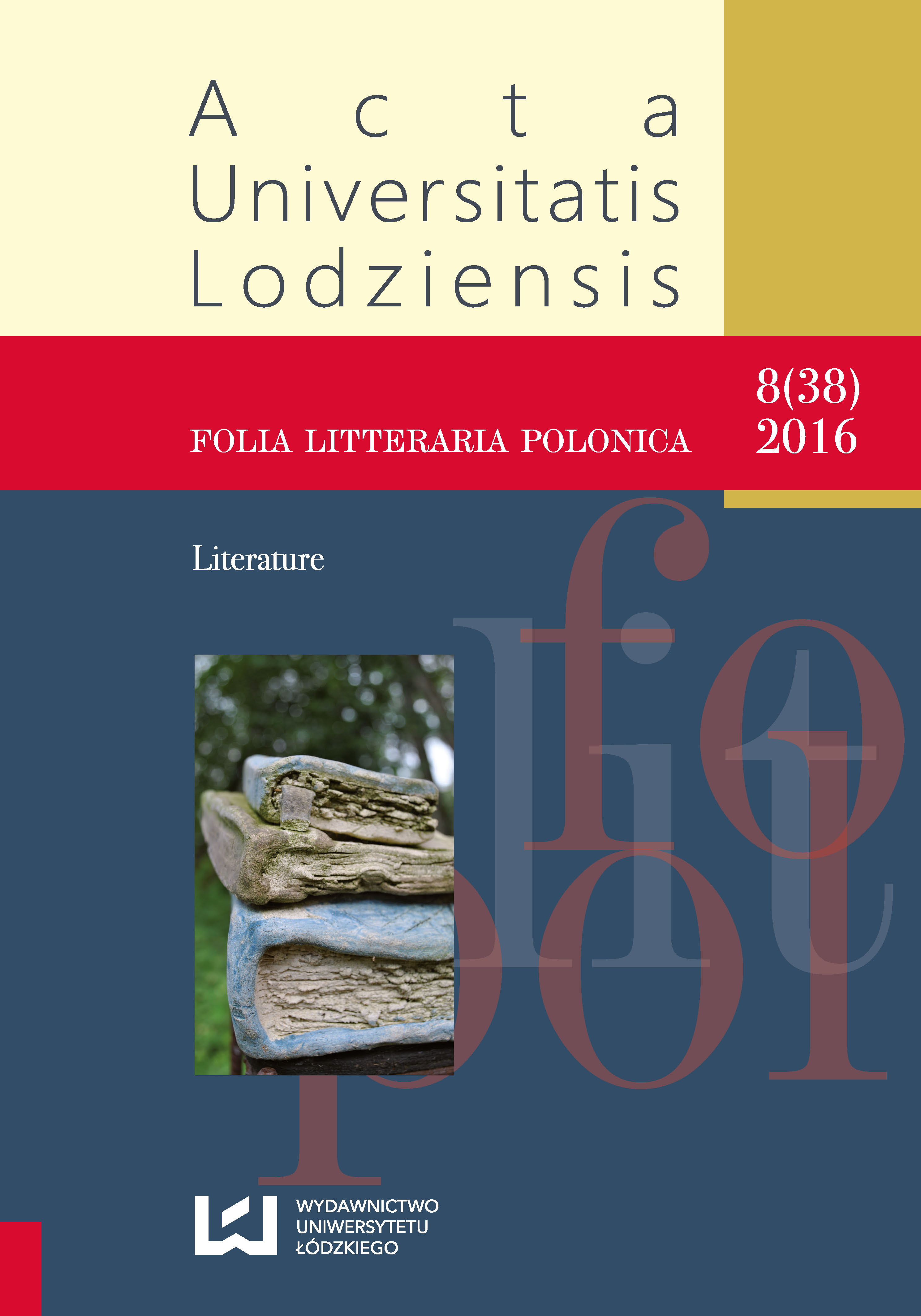Miłosz: Self-Reflection as the Topic of a Poetic Description
DOI:
https://doi.org/10.18778/1505-9057.38.06Słowa kluczowe:
Czesław Miłosz, Three Winters, poetryAbstrakt
Czesław Miłosz’s poetry displays two reverberating topics which may be defined as contradictory existence and world experiences. One of those is the admiration for the beauty of the world and awe consequent upon capturing the simultaneous existence of individual entities (Amazement), whilst the other is the topic of the lack of fulfilment, torment, the feeling of lack of authenticity, blame, and shame (This).
Miłosz depicted his “I” (represented by various personae), the split between individual consciousness, a strong sense of individuality, distinct from the commune of ordinary people (a strand salient in the pre-war volume Three Winters), at the same time nurturing a feeling of strong bonds with the society.
The poet’s self-reflection holds for both topics, while the autobiographic discourse is orientated to the questions about the functions of the poetic language and about the status and sense of poetry, thereby addressing the self-topicality.
Pobrania
Bibliografia
Błoński Jan, Epifanie Miłosza, in: idem, Miłosz jak świat, Wydawnictwo “Znak”, Cracow 1998.
Google Scholar
Fiut Aleksander, Moment wieczny. O poezji Czesława Miłosza, Wydawnictwo Literackie, Warsaw 1993.
Google Scholar
Miłosz Czesław, Trzy zimy & Głosy o wierszach, R. Gorczyńska, P. Kłoczowski (eds.), Aneks, London 1987.
Google Scholar
Miłosz Czesław, Wiersze wszystkie, Wydawnictwo “Znak”, Cracow 2011.
Google Scholar
Miłosz Czesław, Zamiast, in: idem, Piesek przydrożny, Wydawnictwo “Znak”, Cracow 1997.
Google Scholar
Miłosz Czesław, Ziemia Ulro, Wydawnictwo “Znak”, Cracow 1994.
Google Scholar











